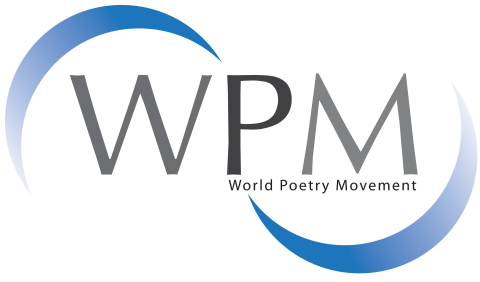3rd Boao International Poetry Festival Was Held In Hainan
The 3rd Boao International Poetry Festival was held in Boao forum of Asia from November 26 to 29, 2021 in China. Due to the influence of COVID-19, it was carried out in the form of combining reality with virtual. Han Qingcheng, Secretary General of Boao International Poetry Festival and director of the jury of the fourth Boao International Poetry award, presided over the opening ceremony and award ceremony. Cao Shui, Executive Deputy Secretary General of Boao International Poetry Festival and deputy editor in chief of World Poetry, interpreted simultaneously and received the award on behalf of foreign poets.
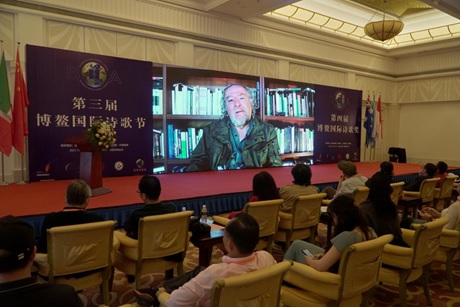
Huang Yazhou, vice president of the 6th China Writers’ Association and President of Boao International Poetry Festival; Fernando Rendon, founder of the World Poetry Movement and President of Medellin International Poetry Festival in Colombia; Alex Pausides, President of Cuban Writers’ Association and President of Havana International Poetry Festival; George Wallace, editor in chief of American Poetry Bay magazine; Christopher Okemwa,Professor of KISI University in Kenya President of Kistrech International Poetry Festival; Rati Saxena, President of Kritya International Poetry Festival in India and Indian coordinator of the World Poetry Movement, Keshab Sigdel, Professor of Tribhuvan University, Nepalese Coordinator of World Poetry Movement; Francis Combos, French coordinator of the World Poetry Movement; Nurduran Duman, Turkish coordinator of the World Poetry Movement; Oscar Saavedra, Chilean coordinator of the World Poetry Movement; Niyi Nosundare, winner of the African Noma Award and Nigerian poet; Dinko Telecan, winner of the European Poetry Award and Croatian poet; French poet Alexis Bernaut; Italian poet Laura Bellotti; Spanish poet Miguel Curiel; Chilean poet Roberto Aedo; Mexican poet Gustavo Osorio; Nigerian poet Ayo Ayoola-Amale; Colombian poet Carlos Andres Jaramillo; Nigerian poet Hanu Afere; Japanese poet Mari Kashiwagi; Mei Er, President of the Twelve Back International Poetry Festival; Tan Jie, member of the jury of World Poetry Network; Xiang Ming, the fourth Boao International Poetry Prize winner, China Taiwan poet; Vadim Terekhin, Co-Chairman of Writers’ Union of Russia, Russian Coordinator of World Poetry Movement; Lucilla Trapazzo, editor of Swiss Mockup magazine, Yasef Ananda, Cuban poet, Stefano Cortese including 28 poets from 17 countries , attended the conference by video.
AI Zi, vice chairman of Hainan Writers Association and vice chairman of Boao International Poetry Festival; Xu Jingya, former professor of poetics center of Hainan University and honorary director of the Organizing Committee of the third Boao International Poetry Festival; Geng Zhanchun, professor and doctoral supervisor of Henan University and judge of the fourth Boao International Poetry Award; Che Yangao, executive director of China Poetry Society and winner of Lu Xun Literature Award; David, deputy director of the organizing committee of the third Boao International Poetry Festival and judge of the fourth Boao International Poetry award; Zhang Deming, professor of Lingnan Normal University; Wang Guilin, deputy editor in chief of Yanhe poetry and judge of the fourth Boao International Poetry Award; Luo Luo, vice president of Xiangshan College of Literature and the judge of the fourth Boao International Poetry award; San Quan, the organizing committee member of the third Boao International Poetry Festival; San Sejin, the deputy editor in chief of Literature of the Special Zone, the organizing committee member of the third Boao International Poetry Festival; Qingxin, the evaluation committee member of the world poetry network; Mu Ye, the deputy editor in chief of the World Poetry Network, member of the Organizing Committee of the third Boao International Poetry Festival; Cao Shui, deputy editor in chief of World Poetry magazine and executive deputy secretary general of Boao International Poetry Festival, Zhou Hongwei, deputy director of Hainan Nanhai Cultural Image Academic Exchange Center; Chen Bolai, director of Hainan Writers Association and editor in chief of Hainan channel of World Poetry Network; Wu Yue, member of the Organizing Committee of the third Boao International Poetry Festival and chairman of Qionghai Writers’ Association; Ba Cheng, editor of Coconut City Magazine; Fu Dunxiao, reporter of Pengpai News Hainan channel and local poets from Guangdong and Hainan, Leng Xianqiao, Zi Xuan, Wen Bo, Ming Yang, Qiu Mingguang, Feng Xiuqun, Mai Bangying and Huang Hongqiang, and winning poets of the fourth Boao International Poetry award—— Yu Nong, President of World Poetry magazine; Gao Kai, vice chairman of Gansu Writers Association and President of Gansu Academy of Literature; Nan Ou, President of Guizhou Poetry Society; Jonathan Mulcahy, Canadian poet, Chinese poets Wang Feng, Lu Di, Zou Liming, Wang Tongle, Xu Jinjin and Zhou Yan, Shi Mian, Dong Shuilou, Lei Dao, Tian He shui, Dang Shuibei, Jingye Tingyu, Winter Snow, Zhong Ling, Yan Ruoxi and Sun Lianke, nearly 50 poets, attended the opening ceremony and poetry activities.
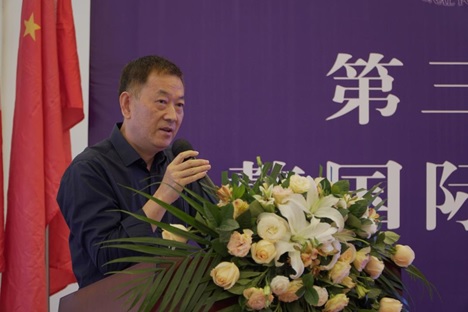
At 2:30 p.m. on November 27, the opening ceremony of the third Boao International Poetry Festival was held in the new Boao Hall of the Boao Forum for Asia International Conference Center. Han Qingcheng firstly made a speech. He said that because of the influence of COVID-19, the attenders of this year’s Boao International Poetry forum and the Boao International Poetry Festival is the least of four years came to the scene. Many award-winning poets and guests, especially those from abroad, could not come to the scene. According to international practice, this year we invited 26 famous foreign poets from 17 countries to participate in the opening ceremony of the poetry festival, the award ceremony and the 2021 meeting of Boao International Poetry forum by video. Therefore, this year is the poetry festival with the most foreign poets. Due to the outbreak of the epidemic, nearly 10 guests and award-winning poets such as Huang Yazhou, Wang Jianzhao and Yang Siping were forced to cancel their trip before leaving or after arriving at the airport. I want to say that our party today is very precious. Then, Huang Yazhou announced the opening of this poetry festival by video and expressed greetings to poets from all over the world through the large screen. He said, I am now at Hangzhou Airport. I was supposed to fly to Haikou, but I was forced to suspend my trip because of the outbreak of the epidemic in Hangzhou. I had to announce the opening of the poetry festival here and said hello to all poetry friends. I wished this poetry festival a complete success and wished all poet friends well-being and success.
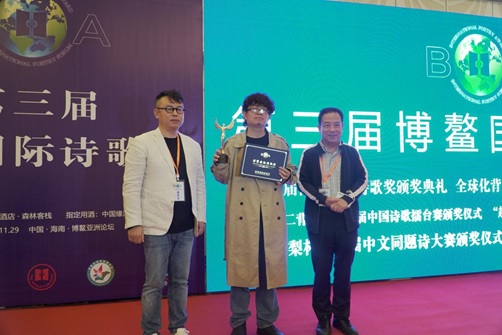
Subsequently, the fourth Boao International Poetry Award ceremony was held. In order to prosper the world’s poetry writing and promote the internationalization of Chinese poetry, the fourth Boao International Poetry award, sponsored by the Boao International Poetry Festival, the World Poetry Movement and the Huang Yazhou Poetry Development Foundation, was voted by the jury of the fourth Boao International Poetry Award to produce the “Outstanding Achievement Award”, “Poet Of The Year Award”, “Poetry Collection Of The Year Award” and “Young Pioneer Poet Of The Year Award” of the fourth Boao International Poetry Award. Cao Shui received the award on behalf of foreign poets Vadim Terekhin, Yasef Ananda, Lucilla Trapazzo, Stefano Cortese and Japanese poet Mari Kashiwagi. Cao Shui also translated award-winning speeches for Canadian poet Jonathan Mulcahy and other foreign poets who received awards in video. The committee of the Boao International Poetry Award presented awards to the following poets on the spot:
Outstanding Achievement Award:
Xiang Ming (Taiwan, China)
Philip Salom ( Australia)
Poet Of The Year Award:
Vadim Terekhin (Russia)
Yuan An (China)
Wang Feng (China)
Yu Nong (China)
Yasef Ananda (Cuba)
Poetry Collection Of The Year Award:
Ruscellante (Italian version), by Lucilla Trapazzo [Switzerland] . Voltania Edizioni, Italy, 1st edition, April 2021.
Selected Poems of Gao Kai, by Gao Kai [China]. Changjiang Literature and Art Publishing House, 1st edition, November 2020.
Rhythm of Dance, by Li Jinkun [China] . Beijing Times Chinese Book Company, 1st edition, June 2021.
Time Notes, by Liang Ping [China]. Huacheng Publishing House, 1st edition, April 2020.
Unconventional Language (bilingual edition), by Lu Di, translated by Xu Jiantong and Qi Fengyan. The Herald Publisher, 1st edition, June 2021.
Longing For the Last Modification of Time, by Nan Ou [China]. Jiangsu Phoenix Art Publishing House, 1st edition, February 2021.
Young Pioneer Poet Of The Year Award
Zou Liming (China, 1994)
Jonathan Mulcahy (Canada, 1984)
Stefano Cortese ( Italy, 1990)
Wang Tongle (China, 1999)
Jinjin Xu, (Macao, China, 1994)
Zhou Yan (China, 1987)
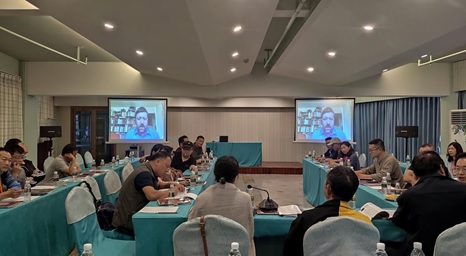
On the afternoon of the 28th, the 2021 annual meeting of Boao International Poetry Forum was held. The theme of the annual meeting was “response and future of World Poetry in the context of globalization”. The annual meeting was presided over by Xu Jingya. More than 30 poets including Geng Zhanchun, Ai Zi, Che Yangao, David, Gao Kai, Han Qingcheng, Nan Ou, Wang Guilin, Yu Nong, Qingxin, Zhou Hongwei, Mu Ye and Cao Shui attended and spoke at the annual meeting. Vadim Terekhin, Nurduran Duman, Roberto Aedo, Keshab Sigdel, Yasef Ananda, Lucilla Trapazzo, Hannu Afere, Stefano Cortese and other foreign poets attended and spoke by video. Cao Shui said in the keynote speech “Out Of Involution: In The Era Of Globalization, Chinese Poets Should Be Able To Write The Whole World”:In the era of Internet and globalization, the “World Literature” put forward by the great German poet Goethe in 1827 is accelerating. Poets all over the world are becoming a whole. In reality, the performance is the “World Poetry Movement”. It was founded by Fernando Rendon, an outstanding Colombian poet and President of Medellin International Poetry Festival, and poets from all over the world at Medellin poetry festival in 2011. They issued the Manifesto Of the World Poetry Movement, which aims to make the world a whole through poetry. In 2017, I joined World Poetry Movement through the Turkish poet Nurduran Duman, and communicated with more than 100 famous poets all over the world through E-mail. We formed a poetic school of “World Poetry Movement” through writing, translation, publication and discussion. This year, Han Qingcheng founded World Poetry magazine. I was also invited as the deputy editor in chief of English version. Through World Poetry, I invited dozens of influential poets from all over the world. As the purpose of the World Poetry said, “let world poetry enter China and let Chinese poetry go to the world”.
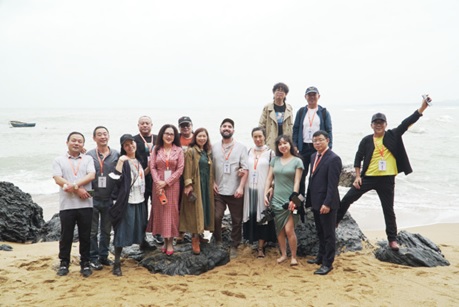
At 8:00 p.m. on the 27th, a poetry reading meeting of “stars and waves” was held in Boao Poetry House. The recitation was co-chaired by Nan Ou and Wang Tongle. The participating poets recited their poems created in Hainan one after another, and some poets also performed talent performances such as song singing. During the poetry festival, the poets also visited Longgun Mountain and Qinwan Bay, a popular and cutting-edge punch in place in Hainan, and Sha Mei village, the most beautiful village in Hainan, to write poetry works.
Out Of Involution: In The Era Of Globalization, Chinese Poets Should Be Able To Write The Whole World
By Cao Shui
The Internet Accelerates The Formation Of The Era Of World Literature: From Western Centrism To Eastern And Western Polycentrism.
The Flower Of The Rotating Tower Of Babel Goes East To Persia, India, China, And East To Judea, Egypt, Greece
(Speech At The 3rd Boao International Poetry Festival Forum)
In the era of Internet and globalization, the “World Literature” put forward by the great German poet Goethe in 1827 is accelerating. Poets all over the world are becoming a whole. In reality, the performance is the “World Poetry Movement”. It was founded by Fernando Rendon, an outstanding Colombian poet and President of Medellin International Poetry Festival, and poets from all over the world at Medellin poetry festival in 2011. They issued the Manifesto Of the World Poetry Movement, which aims to make the world a whole through poetry. In 2017, I joined World Poetry Movement through the Turkish poet Nurduran Duman, and communicated with more than 100 famous poets all over the world through E-mail. We formed a poetic school of “World Poetry Movement” through writing, translation, publication and discussion. This year, Han Qingcheng founded World Poetry magazine. I was also invited as the deputy editor in chief of English version. Through World Poetry, I invited dozens of influential poets from all over the world. As the purpose of the World Poetry said, “let world poetry enter China and let Chinese poetry go to the world”. I am also widely involved in the international poetry circle. The Flowers of the Empire published this year in Italy has won four international awards: the Apollo Dionysus Poetry Award of the 8th International Academy of Contemporary Poetry and Art in Rome, the 27th International Poetry Award of Squid Bone in Italy, the 8th Giovanni Bertacchi International Poetry Award in Italy, The Silver Medal of the 2021 Toronto International Poetry Art Festival. My translation of Russian poet Vadim Terekhin’s poetry collection Transparent Time won the 12th Golden Knight award in Russia, which is the highest award for translation. To integrate into world literature, like domestic literature, we should write, comment, publish and win awards together with them. The most important thing is that the content and form of the works are truly integrated into the world literary circles.
Today’s world is not China in the Han and Tang Dynasties, but the Earth in the era of globalization. Chinese culture is only an integral part of world civilization, which we have to accept and deal with. Today’s civilization is developed from the seven civilizations that used to lie across the Eurasian continent, from Babylon to Persia, India, China to the East, and Judea, Egypt, Greece to the West. Only by tracing back to this root vein can we integrate into the whole world civilization, then integrate ancient and modern civilizations, integrate occidental and oriental civilizations, integrate mysterious and secular civilizations, create a unique civilization, and re-lead the world civilization. Eastern and Western civilizations are like seesaws. Chinese civilization once led the world civilization in the feudal era, but we have to admit that now western civilization has become the mainstream of global civilization. Chinese poets should be able to write the whole world, so that we can press the seesaw of world civilization to the East again. At present, western centralism is widely distributed in the world, and some people in China want to counter with Oriental centralism. In fact, it is a diversified world. I prefer the cosmopolitanism of eastern and Western polycentrism.
In 2018, I initiated the “Dispute of Cao Shui and Yi Sha”, which was caused by my article “99% Of China’s Modern Poetry Is Garbage, And Yi Sha Is Garbage In Garbage“. Therefore, our Great-Poetics school has had a debate with Yi Sha’s Post-Oral Poetry school for three years. Now, although it seems extreme, it is also my concern about the repeated general involution in China. If we want to surpass western culture, we must first understand western culture. For a simple example, many people now study western translated poetry and write modern poetry. The rhyme of Western poetry causes stumbling sentences. Many poets actually follow the standard and regard it as the first thing to speak unclear words. People who know a western language know that those poets are clear and fluent in the western context, I found that Chinese poet Haizi’s poetry goes beyond this kind of sentence break, so I must make my poetry meet the requirement that a sentence or a meaning should be finished in a line of poetry.
This is just an example. I once thought about Chinese poetry systematically. Not long ago, I participated in the academic questionnaire of the National Social Science Fund Project “Research On Innovative Poetic Style Of Contemporary Chinese Poetry” hosted by Shanghai critic Tie Wu. Here I share Cao Shui Asked Ten Questions About Chinese Poetry with you:
- Do you realize that the modern Chinese poetry world has fallen into the mire of repeated involution? How to get out?
- Do you realize that the history of poetry is divided into epic in the first stage, metrical poetry in the second stage and free poetry in the third stage? Have you read the Indian Epics, Homer Epics, Gilgamesh and the world’s major epics?
- Are you aware of the break from ancient metrical poetry to modern Chinese? How to integrate ancient and modern cultures in poetry?
- Are you aware of the modern significance of poetry in major Western languages? How to combine western and eastern cultures in poetry?
- Do you know a major Western or Eastern foreign language? Do you know that the broken sentences in translation are caused by the rhyme of literal translation of Western poetry?
- Are you aware of the relationship between content and form in poetry? How can we integrate the two?
- Do you realize that besides Chinese and Western civilizations, there are also vast Babylonian, Jewish, Egyptian, Indian and Persian civilizations? Have you read their poems?
- Do you know how the discourse power of poetry is formed? How do you think we can break the “hegemony of poetry” and make Chinese modern poetry brilliant?
- Do you know the “Dispute of Cao Shui and Yi Sha” during 2018-2020? Which do you think is more meaningful, the Great-Poeticism advocated by Cao Shui or the Post-Colloquial poetry of Yi Sha? Can it open up a new path for the centennial Chinese modern poetry?
- Do you think Great-Poetics can lead modern Chinese poetry out of the quagmire? Do you understand its core proposition of “Integration Of Ancient And Modern Cultures”, “Integration Of Western And Eastern Cultures”, “Integration Of Mysterious And Secular Cultures”, “Integration Of Masculinist And Feminism Cultures”, “Write According To The Shape Of Things”And “Integration Of Sound And Meaning In Languages”?
Finally, I tell a story about the Tower of Babel. At first, mankind wanted to build a tower to the heaven, the Tower of Babel. After God knew it, he was afraid to affect his authority, so he disturbed the human language. Therefore, people stopped the construction because they could not communicate, and dispersed around the world to form different nations. This is a metaphor, which is recorded in the Bible, and there are similar myths in China’s Taiping Guangji. The biggest enlightenment of this story to me is that when you open up the gap between languages, the Tower of Babel will naturally form. If we can exchange ideas in English, Chinese, French, Russian, Spanish and Arabic, the Tower of Babel will be rebuilt. This is also my enlightenment in the process of learning English. Why do I emphasize the need to learn a foreign language? Only in this way can you look backward the meaning of your mother tongue again. This is also the implied meaning of Tower of Babel, so my another name is the Lord of Tower of Babel. The dream of rebuilding Tower of Babel may take 500 years to realize, but we can reach the highest secret we pursue through the integration of literary writing. Finally, I would like to emphasize once again that today is an era of globalization. We live on the planet of a global village. As Chinese poets, using the language from the Galaxy, we should be able to write the world!
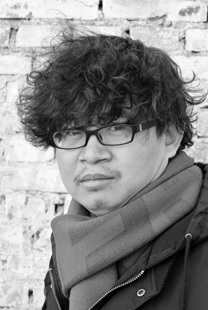
Cao Shui(Chinese: 曹谁;pinyin: Cáo Shuí), also Shawn Cao (born in Jun 5, 1982), is a Chinese poet, novelist, screenwriter and translator. He is a representative figure of Chinese Contemporary Literature. He leads “the Greatpoeticism” movement. In his “Manifesto of Greatpoem”, he aims to integrate sacred and secular cultures, oriental and occidental cultures, ancient and modern cultures in Chinese literature. In 2008, he resigned from a newspaper and traveled around Tibet and Xinjiang, which is the center of Eurasia or the World in his view. His novels Secret of Heaven trilogy tells the whole developing history of human civilization. His most notable works includes Epic of Eurasia, the already mentioned trilogy and King Peacock (TV series). In his works, he extracts elements of various ancient human civilizations, from Babylon to the west to Judea, Egypt, Greece, to the east to Persia, India, China, and uses these elements to reconstruct a new Utopian human homeland, which always described as Eurasia, the Top of the Tower of Babel or Kunlun Mountains (Heaven Mountains). So far twenty books of Cao Shui have been published, including five poem collections, three essay collections, ten novels, three translations and one hundred episodes TV series and films. His works have been translated into English, Italian, Spanish, French, German, Danish, Polish, Russian, Hungarian, Croatian, Slovenian, Turkish, Arabic, Japanese, Korean, Hindi, Nepali, Vietnamese, Tibetan, Mongolian, etc. He has been invited to participate in the 30th Medellin International Poetry Festival, the 26th Havana International Poetry Festival, the 14th Kritya International Poetry Festival in India and the 4th Qinghai Lake International Poetry Festival. He is a member of China Writers Association, China Film Association and China Poetry Society. He is also chief editor of Great Poetry, deputy editor in chief of World Poetry, secretary general of Boao International Poetry Festival and vice president of the Silk Road International Poetry Festival. Currently he lives in Beijing, and works as a professional writer and screenwriter.
